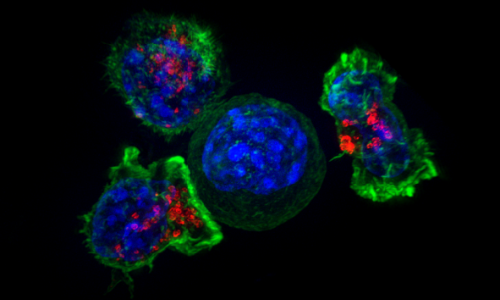Loading
Journal of Cancer Immunology
ISSN: 2689-968X
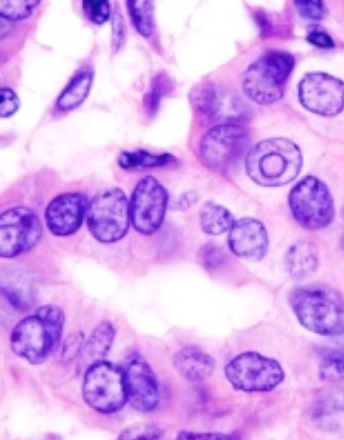
2022
Volume 4, Issue 2, p33-70
Articles published in this issue are Open Access and licensed under Creative Commons Attribution License (CC BY NC) where the readers can reuse, download, distribute the article in whole or part by mentioning proper credits to the authors.
Higher Frequency and Poor Prognosis with COVID-19 Associated Cytokine Storm among Cancer Patients: Between Two Fires
Murat Bektaş, Nevzat Koca, Burak İnce
At the end of 2019, the world faced a new disease, COVID-19 caused by SARS-Cov-2 and became a pandemic within few weeks. The fact that COVID-19 spreads very quickly and has
significant morbidity and mortality had devastating effects all over the world.
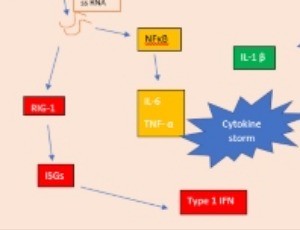
Can Butein be a Future Candidate for the Treatment of Advance Metastatic Thyroid Cancer?
Devavrat Tripathi, Savita Kulkarni
The incidence and prevalence of papillary thyroid cancer (PTC) are increasing worldwide and it is the 5th most common endocrine cancer in females.
J Cancer Immunol, 2022, Volume 4, Issue 2, p43-46 | DOI: 10.33696/cancerimmunol.4.064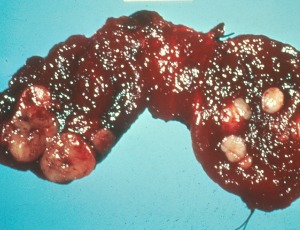
Performance of the Tyrer-Cuzick 8 Breast Cancer Risk Model Across Races: A Review
Melissa D Porterhouse, Rosalinda Alvarado
The Tyrer-Cuzick (TC) model is a breast cancer risk assessment tool that provides women with their risk of developing breast cancer based on genetic and personal factors. The most recent version of the TC model, TC8, is the first version to include breast density as a risk factor for breast cancer.
J Cancer Immunol, 2022, Volume 4, Issue 2, p47-51 | DOI: 10.33696/cancerimmunol.4.065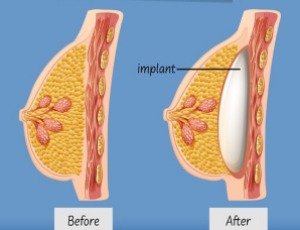
Clutch Control: Changing the Speed and Direction of CAR-T Cell Therapy
Alberto Nobili, Aya Kobayashi, Patrick C. Gedeon, Carl D. Novina
The adoptive transfer of T cells expressing chimeric antigen receptors (CAR-T cells) has revolutionized the treatment of hematological malignancies, providing unmatched clinical responses in adults and children with relapsed or refractory B cell malignancies.
J Cancer Immunol, 2022, Volume 4, Issue 2, p52-59 | DOI: 10.33696/cancerimmunol.4.066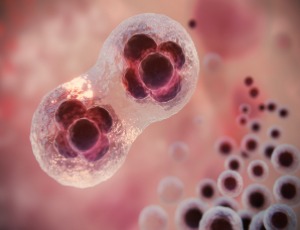
Molecular Iodine Misconceptions: A Novel Formulation Approach to Topical Iodine
Jack Kessler
My team of chemists have formulated molecular iodine (I2) so it can be studied independent of other iodine species.The initial impetus for this effort was to allow for a higher concentration of biocidal I2 that would not evaporate into the atmosphere when applied to skin.
J Cancer Immunol, 2022, Volume 4, Issue 2, p60-64 | DOI: 10.33696/cancerimmunol.4.067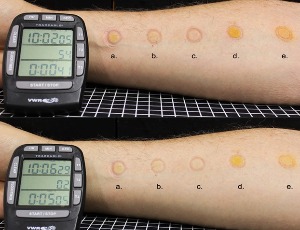
A Surprising Benefit of Cysteine Capping for Antibody Drug Conjugates
Aaron M. D’Antona, Kaushik Dutta, Xiaotian Zhong
Antibody-drug conjugates (ADCs), combining the best features of monoclonal antibodies and small molecule drugs, are considered the “guided missiles” for cancer therapy, with eleven FDA-approved products. Yet the ADC modality still presents a huge challenge to drug developers, especially for targeting tumors with low abundance and/or heterogeneity of tumor-associated antigens.
J Cancer Immunol, 2022, Volume 4, Issue 2, p65-70 | DOI: 10.33696/cancerimmunol.4.068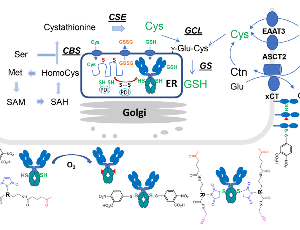
Recommended Articles
Prevalence of Symptom Clusters in Cancer Patients at First Presentation in Palliative Care Clinic as per Different Disease Groups
Cancer has its own disease burden and patients usually suffer from symptom clusters when they are referred for palliative treatment. Identification of symptom cluster trajectories will help clinician to take into account measures that can optimize quality of life of palliative patients. Therefore the aim of this paper is to determine the overall prevalence of symptoms and symptoms clusters in different disease groups according to etiology at the time of first visit to Palliative care clinic by using HIS Palliative First Assessment note indicating Edmonton symptom scale.
Chimeric Antigen Receptor CAR NK Cells Emerging Immunotherapy for the Treatment of Cancer
Although NK cells are recognized as effector lymphocytes of the innate immune system, they also regulate the adaptive immune response by releasing inflammatory cytokines and developing immunological memory. Unlike other lymphocytes such as T or B cells, NK cells do not express rearrangeable, antigen-specific receptors.
Emerging Role of TRPML1 Mucolipin Endolysosomal Channel in Cancer
The transient receptor potential mucolipin 1 (TRPML1) is an endolysosomal channel belonging to the TRP family. Clinically, mutations of TRPML1 have been responsible for a severe lysosomal storage disorder called mucolipidosis type IV.
COVID-19 Clinical Research
While the global COVID-19 pandemic has challenged the entire humanity and health systems, it also triggered researchers to urgently perform clinical trials to assess the safety and efficacy of many agents and modalities to combat COVID-19. As of April 22, over 650 clinical studies have been registered both in USA and internationally. Results from these studies are also coming at a brisk pace in this unprecedented emergency.
Therapeutic Values of Ketamine for COVID-19-Cared Patients: An Expert’s Point of View
Ketamine has long been used in the field of anesthesia [1]. Its rapid and long-acting analgesic effects associated with its dissociative properties have also established its use in prehospital and emergency department patients.
Uniportal VATS Lobectomy for Lung Cancer: Feasibility and Cost Effectiveness in a Single Center Experience
In last decades, video-assisted thoracic surgery (VATS) together with robotic-assisted thoracic surgery (RATS) can be considered the biggest innovation in thoracic surgery. This approach drastically changed the way of performing surgical operations, improving patient’s outcome undergoing thoracic surgery.
A Bioinformatics Protocol for Rational Design of Peptide Vaccines and the COVID-19 Rampage
The currently ongoing coronavirus pandemic, the SARSCOV- 2, interchangeably referred to as the COVID-19 infection, has in a short span of time altered the ways and means of almost all of mankind. So strong has been its effect that all human activity ceased in one way or another for a considerable time, led to significant loss of life and economic drain of.
Circulating Cell-Free RNA: A New Perspective for Endometrial Cancer
In order to implement the knowledge of cancer to monitor its evolution and setting, in the last decade, new minimally invasive and repeatable samples collection have been developed such as liquid biopsy.
Searching for Easy Reliable Prognostic Parametres in Colorectal Cancer Patients Evaluation
Despite the advances in diagnostic and therapeutic field, colorectal cancer (CRC) still remains the third most common cause of death worldwide, with more than 600,000 cancer-related deaths per year.
Lessons Learnt from COVID-19: How Can We Prepare for Another Pandemic?
Five months into the COVID-19 pandemic, the U.S. death toll from the virus has now surpassed 100,000 people. Many more cases remain nationwide, while an unknown number of patients currently harbor the virus asymptomatically. While health officials are now optimistic regarding the decline in prevalence and number of deaths due to COVID-19 and the possibility of a vaccine by the fall, we cannot lose sight of the bigger picture: the next pandemic.
Safety of Using Rituximab Therapy During COVID-19 Pandemic
Rituximab is a chimeric (20% rodent and 80% human) monoclonal antibody that binds to the CD20 antigen present on the cell surface and leads to depletion of mature B-cells [1,2]. It is the first approved monoclonal antibody to be used in the therapy of indolent B-cell non- Hodgkin’s lymphoma and chronic lymphocytic leukemia
Deubiquitinase as Potential Targets for Cancer Immunotherapy
During the last few decades, immunotherapy is considered to be an important approach to help our immune system to fight various kinds of diseases, such as tumor. Sometimes, it works very well for some types of cancers, for example: bladder cancer, colorectal cancer, breast cancer and lymphoma.
Educators as Essential Workers in the Era of COVID-19: Applying Lessons from Disaster Recovery
In the article, “Mental Health Framework: Coronavirus pandemic in post-Katrina New Orleans” [1], Shervington and Richardson offer recommendations about how to anticipate and address disaster-related, trauma exposures associated with the coronavirus pandemic
How Well Do Hemodialysis Patients Respond to the BNT162b2 mRNA COVID-19 Vaccine?
In January 2020, the World Health Organization (WHO) classified COVID-19 to be a Public Health Emergency of International Concern and declared it a pandemic on March 11, 2020 [1]. Over one hundred and eighty-five million people have been infected by SARS-CoV-2 and roughly four million have died worldwide so far
Synthetic Lethal Drug Combinations Targeting Proteasome and Histone Deacetylase Inhibitors in TP53-Mutated Cancers
Tumors harboring mutations in certain oncogenes are often dependent on activation of certain pathways which becomes essential for the survival of the cancer cells. This condition is formally known as synthetic lethality, a state when simultaneous loss of two genes is lethal to a cancer cell, while the loss of the individual genes is not.
Family Planning Laboratory Review of Factors Affecting the Choice of Contraceptive Methods in Three Teenagers' Populations in Thrace, Greece
Contraception encompasses the concept of avoiding a pregnancy, and is aimed at women of reproductive age who, although are sexually active, do not want to achieve any pregnancy at their option fertility preservation and family planning
Role of the Gut Microbiome in the Modulation of Cancer Immunotherapy Response
The gut microbiome or gut flora is a vast community of microorganisms such as bacteria, viruses, protozoa, and fungi that inhabit the digestive tract of the human and other animals [1,2]. In the human body, bacterial species colonize into the oral cavity, skin, vagina, and placenta, however, the largest population of microorganisms resides in the intestine.
Do Support Vector Machines Play a Role in Stratifying Patient Population Based on Cancer Biomarkers
Cancer is a worldwide public health issue that affects millions of people every year. In 2018 there were 17 million newly documented cases of cancer globally (8.8 million in men and 8.2 million in women), leading to 9.6 million deaths. Cancer is a vastly heterogeneous disease, with over 100 different types of cancer currently identified in humans; the most common types of cancer are lung, female breast, bowel and prostate, these four types account for more than 40% of all new cancer case
Prognostic Role of Human Epididymis Protein 4 (HE4) in Ovarian Cancer Treatment: Our Point of View
In the last 10 years, the marker “Human Epididymis protein 4 (HE4)” for the management of gynecological tumors has entered powerfully in the world literature. At the moment, carrying out an accurate research in the main scientific portals such as PubMed, we can find more than 2,000 works concerning Cancer antigen-125 (Ca125), but those concerning HE4 are less than 400.
Sentinel Lymph Node Biopsy after Neoadjuvant Chemotherapy for Breast Cancer
Breast cancer is the second most common cancer worldwide, affecting nearly one in eight women. Accurate cancer staging is essential for determining the patient’s prognosis and for choosing the appropriate treatment.
About Scientific Archives
Scientific Archives is a global publisher initiated with the mission of ensuring equal opportunity for accessing science to research community all over the world. Spreading research findings with great relevance to all channels without any barrier is our goal. We want to overcome the challenges of Open Access with ensured quality and transparency.

